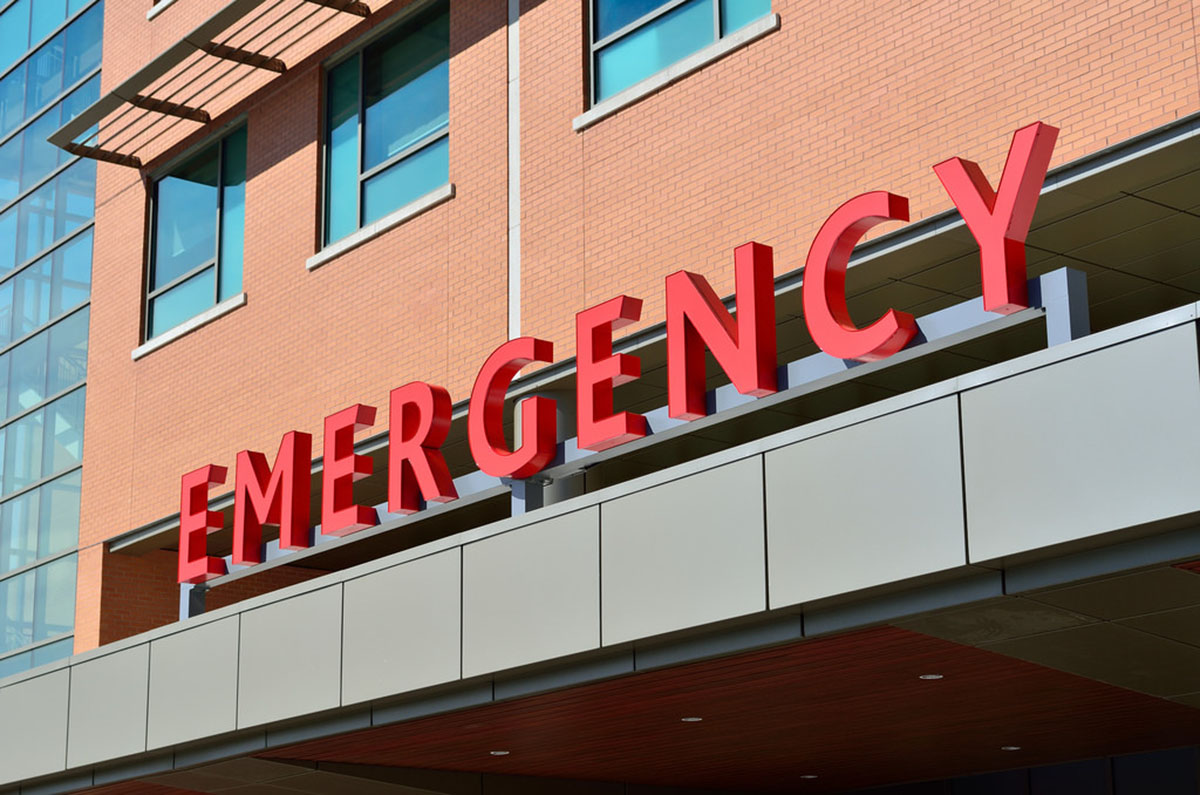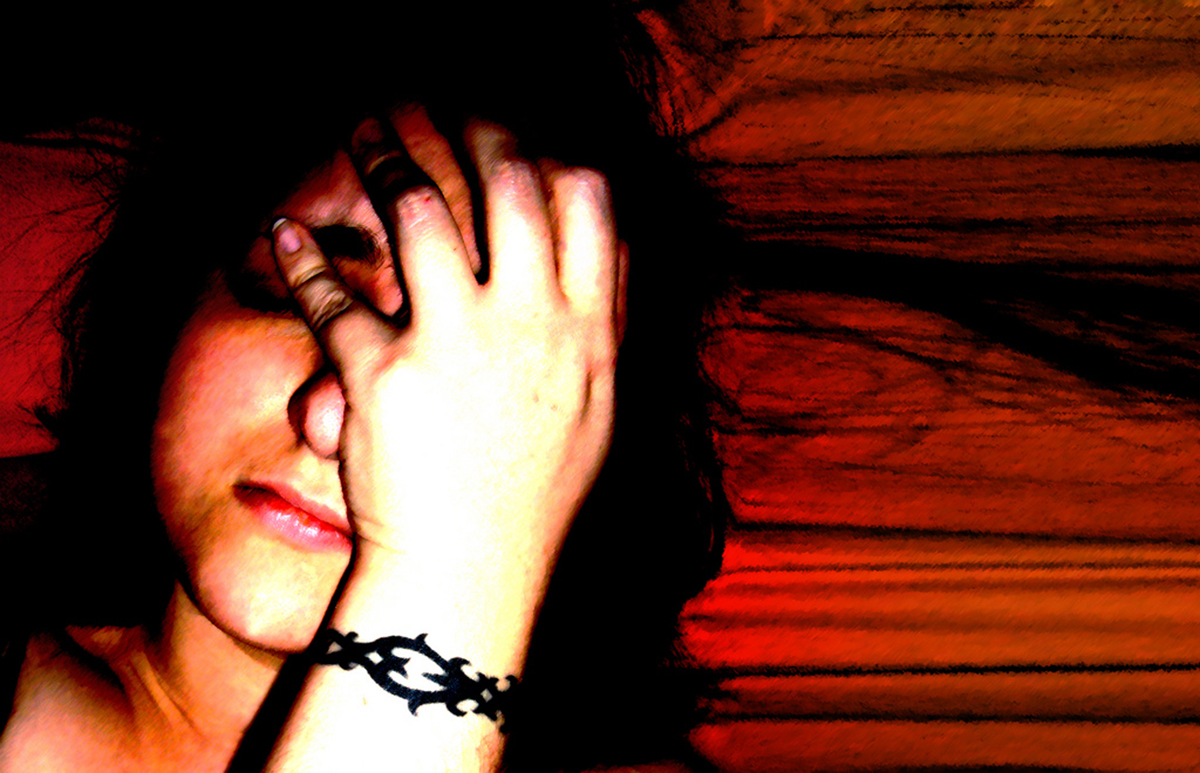We are told over and over that it's very important to get to an emergency room anytime we suffer severe chest pain, so a potential heart attack could be treated in its earliest stages. However, more and more doctors don't always treat angina.
I've had several heart attacks.
I had my first heart attack six years ago, just weeks after a doctor told me that my stress test showed that my arteries were "clean as a whistle." It turned out that I had an inflammatory condition of the linings of my arteries caused by a vaccine (a vaccine I would take again, despite its potency, for rabies, after I was bitten by a confirmed-rabid bat), combined with an undiagnosed clotting disorder. Unfortunately, before my real problem was diagnosed, I had eight heart attacks.
At least I had chest pain, known as angina, shortness of breath, and elevated levels of cardiac enzymes called troponin and creatine kinase. Recently, the eighth time I had all the classical signs of a heart attack, but I was not especially sick. Because I wasn't "sick enough" to look like someone who had just had a heart attack, my doctor gave me a diagnosis of hypertroponinemia, or "high troponin levels."
The real meaning of the diagnosis was I was sick, but I would probably get sicker if they did a catheterization to see what was actually happening with my heart, so the doctors decided to leave a bad situation alone so it would not get worse.
Stress Cardiomyopathy, A Different Kind of 'Heart Attack'
My situation is far from unique. Cardiologists have come to recognize that not every kind of heart attack involves clogged arteries or bursting plaque. Sometimes the symptoms of heart attack, including the laboratory indicators of heart attack, can be caused by a condition first recognized in Japan.
Takotsubo cardiomyopathy, as Japanese doctors named it, can occur after other kinds of stress.
A severe infection, an extremely hard workout, or severe emotional stress can all cause tissue in the heart to break down so that the heart takes on the shape of a takotsubo, or an octopus trap. Because this condition is known to occur after parents lose children, it is also known as broken heart syndrome.
Takotsubo cardiomyopathy does not only occur in Japan. In September of 2015, a group of researchers reporting their findings in the New England Journal of Medicine discussed 1,750 cases of the condition that occurred in Europe and the USA. In their sample, the average age of people with the condition was 67, over 90 percent were women, and the most common event preceding the attack was an infection, although sometimes the heart injury followed news of the death of a child or spouse, and often there was no obvious cause at all.
A Potentially Deadly Condition Doctors Sometimes Fail To Treat
Doctors often do not treat "heart attacks" without obvious symptoms of blood clots, because they wrongly assume they are not serious. However, the death rates of takotsubo cardiomyopathy and myocardial infarction (a heart attack caused by a clot that cuts off circulation to a clearly identifiable part of the heart) are nearly the same. Stress cardiomyopathy, also known as takotsubo cardiomypathy, is a dangerous condition that needs to be taken seriously.
The problem is that many cardiologists fail to give this condition the attention it is due.
How To Recognize Takotsubo Cardiomyopathy Or 'Stress Heart Attack'
Just how serious is takotsubo cardiomyopathy? Here are the statistics.
- One to two percent of all people who have this condition will die within 30 days.
- Up to 20 percent of people who have this condition will develop a myocardial infarction (damage to the heart due to a blood clot) within 12 months. Usually the blood clot will occur on the left side of the heart.
- Takotsubo cardiomyopathy can also cause blood clots in the lungs.
Fortunately, the majority of people who develop this condition recover in four to eight weeks, with appropriate treatment.
How Can You Recognize This 'Heart Attack' That Isn't A Heart Attack?
Takotsubo cardiomyopathy, also known as stress cardiomyopathy or broken heart syndrome, has the same symptoms as myocardial infarction. Usually there is crushing pain in the chest that radiates to the left arm and the left jaw. There can be nausea, dizziness, and/or shortness of breath. The EKG will be similar to the EKG caused by a "regular" heart attack.
However, there will be no evidence of a single place in the heart that is damaged by lack of oxygen due a clot or a "clog" that has ruptured.
There are some clues that a heart event really is stress cardiomyopathy:
- Takotsubo cardiomyopathy (stress cardiomyopathy) is more likely to occur in the afternoon. Myocardial infarction is more likely to occur in the morning.
- Takotsubo cardiomyopathy (stress cardiomyopahty) is more likely to occur in people who do not have the usual predisposing factors, high blood pressure, high cholesterol, and diabetes. Myocardial infarction is more likely to occur in those who do.
- People of Asian descent are 25 percent more likely to get this condition than people of European descent, and people of European descent are 20 times more likely to get it than African-Americans.
- Takotsubo cardiomyopathy (stress cardiomyopathy) is most likely to occur a few hours after bad news of some kind. It is also more common after natural disasters.
What Will Happen If You Have This Kind Of 'Heart Attack'?
In modern medicine, it's not really possible to confirm or rule out a heart attack without an angiograph. This involves opening the femoral artery (in the groin) and inserting a catheter and dyes to take a picture of the heart itself. However, if you haven't had a myocardial infarction, and there is no visual evidence of a clot, you won't get a stent and you won't have a bypass operation.
Nearly everyone who has a myocardial infarction will be put on anticoagulant therapy (especially if you get a stent), but almost no one who has stress cardiomyopathy will.
Nearly everyone who has a myocardial infarction will be put on beta-blockers, but only about five percent of people who have stress cardiomyopathy will get these drugs. However, people who have broken heart syndrome will get ACE inhibitors (for example, lisinopril) or angiotensin receptor blockers (for example, losartan).
No one really knows the long-term development of stress cardiomyopathy. Visits to the cardiologist at least annually for the remainder of life are a must.



